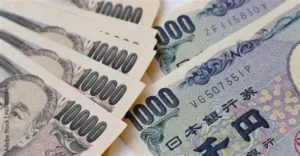
In Japan, the general framework for financial reporting, including the frequency, structure, and content of financial statements, is primarily governed by two key legislations: the Companies Act of 2005—which replaced parts of the earlier Commercial Code of 1993—and the Financial Instruments and Exchange Act (FIEA) of 2007. While the Companies Act applies broadly to various types of companies, including stock companies, general partnerships, limited partnerships, and limited liability companies, the FIEA specifically targets listed companies and unlisted entities that are publicly accountable.
Development of Accounting Standards in Japan
The Accounting Standards Board of Japan (ASBJ), established in 2001 under the Financial Accounting Standards Foundation, plays a central role in setting private-sector accounting standards. Any standards issued by the ASBJ require endorsement by the Financial Services Agency (FSA), which oversees financial regulations in Japan.
Since 2005, the ASBJ has collaborated closely with the International Accounting Standards Board (IASB) to align Japanese Generally Accepted Accounting Principles (Japanese GAAP) with International Financial Reporting Standards (IFRS). This convergence effort led to the voluntary adoption of IFRS for consolidated financial statements beginning in March 2010 for companies meeting certain eligibility requirements.
Multiple Financial Reporting Frameworks
On 30 June 2015, Japan introduced Japan’s Modified International Standards (JMIS), a unique set of standards blending IFRS with specific modifications by the ASBJ. Currently, Japanese companies preparing consolidated financial statements may choose from four accounting frameworks:
- IFRS (International Financial Reporting Standards): Listed companies and unlisted companies preparing for listing are allowed to use IFRS as designated by the Commissioner of the FSA. As of July 2023, over 268 companies—representing more than 45% of the Tokyo Stock Exchange’s market capitalization—have adopted or announced plans to adopt IFRS, reflecting the government’s ongoing encouragement of voluntary IFRS adoption since 2014.
- Japanese GAAP: The traditional accounting standards developed by the ASBJ remain widely used, particularly among companies with a long-standing preference for domestic standards.
- Japan’s Modified International Standards (JMIS): This framework is based on IFRS but includes targeted modifications, notably on the treatment of goodwill amortization and the recycling of other comprehensive income. Despite its introduction, JMIS has yet to attract actual adoption by companies.
- US GAAP: Permitted with the specific authorization of the FSA, US GAAP is typically used by certain multinational corporations with significant ties to the U.S. markets.
Special Consideration: Accounting for Pension Fund Liabilities
One notable issue unique to Japan relates to the accounting treatment for the transfer of the substitutional portion of employee pension fund liabilities to the Japanese government. These pension obligations arise under the Japanese Welfare Pension Insurance Law, which allows the separation of the substitutional portion from the corporate portion of defined benefit plans, transferring both the liabilities and associated assets to the government.
The IFRS Interpretations Committee (IFRIC) examined this issue in relation to IAS 19 Employee Benefits. However, the Committee concluded that the matter was too narrow and lacked broader applicability within the IFRS framework. No interpretive diversity was observed in practice, and as such, the issue was not added to the IFRIC agenda. This underscores Japan’s distinctive challenges in harmonizing certain legacy systems with global standards. It is also worth noting that other complex IFRS standards, such as IFRS 17 Insurance Contracts, remain voluntary in Japan.
Statutory Audits in Japan
The Companies Act and the FIEA outline the statutory audit requirements applicable to Japanese companies. The FIEA mandates audits for all listed companies and for unlisted companies with a significant shareholder base to ensure investor protection. The Companies Act further requires statutory audits for:
- Companies with capital stock of 500 million yen or more, or total liabilities exceeding 20 billion yen as of the fiscal year-end.
- Companies adopting corporate governance models such as a “Company with Nominating Committee, etc.” or a “Company with Audit and Supervisory Committee.”
- Companies that voluntarily appoint external auditors.
Additionally, specific industries and entity types, such as government-subsidized educational institutions, large non-listed financial institutions, incorporated administrative agencies, local governments, agricultural cooperatives, social welfare organizations, and medical corporations, are subject to statutory audits under applicable regulations.
Auditing Standards and Quality Control
Audits in Japan must comply with Japanese Generally Accepted Auditing Standards (Japanese GAAS). These standards are issued by the Business Accounting Council (BAC), a body supervised by the FSA. To operationalize these standards, the Japanese Institute of Certified Public Accountants (JICPA) develops detailed guidance through Statements on Auditing Standards (SAS) and Statements on Quality Management Standards (SQMS). These pronouncements align closely with the International Standards on Auditing (ISA) and the International Standards on Quality Management (ISQM 1 and 2) issued by the International Auditing and Assurance Standards Board (IAASB).
Conclusion
Japan’s financial reporting landscape reflects a careful balance between respecting its domestic practices and aligning with international standards. Through ongoing convergence efforts, voluntary adoption of IFRS, and a robust regulatory framework for audits, Japan continues to modernize its accounting and auditing environment while addressing the unique features of its corporate and legal systems.
References
Deloitte IAS Plus. (2003, April 01). IAS 19 — Accounting for the transfer to the Japanese government of the substitutional portion of employee pension fund liabilities. Retrieved from Deloitte IAS Plus: https://www.iasplus.com/en/meeting-notes/ifrs-ic/not-added/2003/accounting-for-the-transfer-to-the-japanese-government-of-the-substitutional-portion-of-employee-pension-fund-liabilities
Deloitte IAS Plus. (2025). Japan. Retrieved from Deloitte IAS Plus: https://www.iasplus.com/en/jurisdictions/asia/japan
International Federation of Accountants. (2025). Japan. Retrieved from International Federation of Accountants: https://www.ifac.org/about-ifac/membership/profile/japan
Photo:
https://tse2.mm.bing.net/th/id/OIP.U_JQ8QY6Ne_MZwZIhKhjrAHaD2?cb=thvnextc1&rs=1&pid=ImgDetMain&o=7&rm=3



